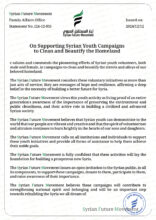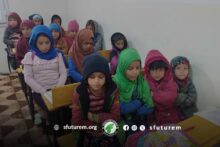Family and Controlling Deviant Behavior in Adolescents

Introduction:
In psychology, adolescence is defined as the transitional stage that an individual goes through from childhood to adulthood. During this period, numerous physiological, physical, psychological, and social changes occur. Adolescence can be divided into three main stages:
- Early adolescence, which extends from ages 10 to 14, is characterized by rapid biological changes.
- Middle adolescence, from ages 15 to 17, where biological changes are completed.
- Late adolescence, from ages 18 to 24, where the individual becomes more aware and mature in their behavior and appearance.
This stage involves the development of abstract thinking, decision-making, reality assessment, and the formation of personal identity. Adolescents seek greater independence and social acceptance.
About Adolescence:
In international law, there is no specific, unified definition of adolescence, but many international organizations, such as the United Nations and the World Health Organization, adopt general definitions. According to UNICEF, adolescence is defined as the age period from 10 to 19 years. This stage is considered a critical turning point where individuals begin to develop their personal and social identity and face significant psychological and physical challenges. This period requires special support to ensure healthy and proper growth for adolescents, and the United Nations works to promote the rights of adolescents and youth through several initiatives and programs aimed at protecting their rights and supporting their aspirations across several key issues, including:
- Education: The UN ensures young people’s right to access quality and inclusive education, including basic, secondary, and higher education, as well as vocational training.
- Health Services: The UN supports young people’s right to comprehensive health services, including sexual and reproductive health. These efforts aim to ensure good health for young people and empower them to make informed decisions about their health.
- Employment: The UN promotes youth rights in employment, including the right to decent work and social protection. It seeks to reduce youth unemployment rates and improve working conditions.
- Political Participation: The UN encourages youth participation in political and public life and strives to increase youth representation in political institutions and their involvement in decision-making processes.
- Protection from Discrimination: The UN works to protect youth from all forms of discrimination, including discrimination based on gender, race, religion, or social status.
- Environmental Rights: The UN supports young people’s right to live in a clean and sustainable environment and encourages their participation in environmental efforts and climate change initiatives.
These efforts are based on human rights principles and the promotion of youth rights worldwide.
The Role of the Family:
The family plays a vital role in controlling deviant behavior in adolescents through several aspects:
- Socialization: The family is the first environment where a child learns values and morals. Through proper upbringing, the family can instill in the adolescent principles of correct behavior and guide them toward positive actions.
- Monitoring and Guidance: It is important for the family to continuously monitor adolescents’ behavior and guide them. This includes keeping track of their daily activities, knowing their friends, and ensuring they are not exposed to negative influences.
- Open Dialogue: Between parents and adolescents, open dialogue helps build trust and makes the adolescent feel they can talk about their problems without fear of punishment. According to a previous survey conducted in the city of A‘azaz, 85% of families do not engage in open dialogue, leading to non-communicative and non-open communication.
- Emotional Support: Providing emotional support to adolescents helps them cope with psychological and social pressures. A cohesive family that offers love and care contributes to reducing the likelihood of deviant behavior.
- Positive Role Models: When adolescents see positive behavior from their parents, they are more likely to adopt the same behaviors.
Enhancing communication between parents and adolescents requires some efforts and strategies to help build a strong and open relationship, including:
- Active Listening: Listen to the adolescent without interruption or premature judgment. This helps them feel heard and understood.
- Encouraging Expression: Encourage the adolescent to freely express their feelings and thoughts.
- Family Time: Allocate time for family activities, whether they are sports, cultural, or even just conversations. This strengthens family bonds and creates opportunities for communication.
- Avoiding Confrontational Questions: Instead of asking questions that put the adolescent on the defensive, ask supportive questions that help them think correctly.
- Providing Emotional Support: Offer emotional support during difficult times.
- Respecting Privacy: Respecting the adolescent’s privacy enhances their sense of independence and self-confidence.
Sounding the Alarm:
It may be necessary to seek professional consultation to control adolescent behavior in cases that indicate a significant danger, including behavioral signs such as:
- Aggressive or Violent Behavior: Towards others or even towards themselves, it may be necessary to seek professional help from a specialized psychological counselor. We at the Family Affairs Office are ready to cooperate and communicate at any time and under any circumstances to help provide advice and care.
- Drastic Behavioral Changes: Such as social withdrawal, changes in academic performance, or loss of interest in activities previously enjoyed.
- Persistent Depression or Anxiety: Such as constant sadness, loss of hope, or excessive anxiety, it may be necessary to consult a mental health specialist.
- Substance Abuse: Addiction to drugs or alcohol, or even addiction to technology and social media, may require professional assistance.
- Unresolvable Conflicts: If there are ongoing and unresolved conflicts between parents and the adolescent, it may be helpful to seek family counseling to improve communication and resolve disputes.
- Academic Problems: Such as academic failure or inability to concentrate, it may be necessary to consult an educational or psychological specialist.
Finally, at the Family Affairs Office of the Syrian Future Movement, we recommend that if you feel that the adolescent’s behavior exceeds your ability to handle it, do not hesitate to seek help from professionals and contact us to facilitate that. The family’s responsibility towards the negative behavior of adolescents is significant, and as raising awareness is important, so is facilitating solutions and psychological consultations, which is what we are trying to work on.
Waheba Al-Masri
Family Affairs Office
Research and Studies Section
Articles
Syrian Future Movement






